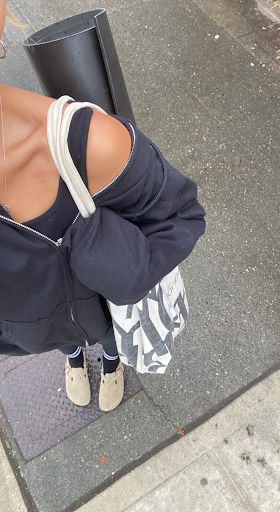Successful People have Successful Routines
I know what it is like to feel ungrounded, unstable, and aimless. By the end of the day you look back and wonder what you actually accomplished…then you slump on the couch and turn on Netflix to distract from your disapproving feelings and tell yourself tomorrow is another day. This sad, but all too common scenario is often the result of not having a solid routine. The good news is, this is relatively easy to fix! Having a routine is important because it provides structure, predictability, and clarity to our daily life! Let’s zoom in.
Routines Improve Mood
When you build a healthy routine, you have the opportunity to create time for the important things that not only help you feel better, but might actually improve your life-span! Routines around sleep, exercise and eating habits have the potential to improve your quality (and quantity) of sleep, boost your mood, concentration and decision making capacity, and overall health. While making a plan can feel like a lot of work upfront, it pays off in the long run when it shifts from intentional planning to your natural rhythm! Approximately 43% of our daily actions are habitual, which means your routine can become habitual too. So hang in there!
Routines Reduce Anxiety and Stress
Imagine waking up in the morning and having a pretty good idea of what your exercise, meals, and rest-times would look like. Having a routine could all but eliminate that stressful moment when you wake up in the morning and feel like you have to make a thousand decisions on what you need to do that day, not to mention how you are going to get it done! When you follow a routine, you have more predictability, structure, and consistency built into your day reducing anxiety, and making the other unexpected aspects of your day a little more manageable.
Routines Boost Cognitive Function
Routines take a good chunk of the guesswork out of the day. When you have positive predictability in your day, you free up mental space for other things! You have more capacity for being creative, dreaming about your next big move, or problem solving as opposed to avoiding. As a result, you end up being more productive and efficient at handling those things you need to do (but don’t necessarily want to do) while still having time for some good old R n’R, and feeling guilt-free when you flop down on the couch at the end of your very productive day.
Simple, Clear, and Mangeable
Now let me confess, I used to be someone who thought making your bed was a useless task. Why make it at the beginning of the day if at the end of the day you're going to un-make it!? I’ve learned a few things since then, like how something as simple as making your bed can have a significant impact on your mood, motivation, and even stress levels! You really don’t need complex routines with every hour of every day mapped out, in fact, that might actually be counterproductive. A simple routine with a few key items is good enough! Given that we think mental health = whole health, here is a simple guideline on what to consider when building your routine:
Culturally healthy habit (i.e. wearing clothes that you feel confident in, creating a playlist while on your way to work)
Spiritually healthy habits (prayer, reflection, scripture reading, even taking a moment to notice the universe around you during one of your breaks)
Socially healthy habits (intentionally eating lunch with a colleague instead of at your desk, calling a friend on your way home from work, or scheduling a weekly hangout)
Mentally healthy habits (practicing mindfulness, thinking of 3 things you are grateful for, or finding one positive thing you did that day)
Emotionally healthy habits (limiting your social media usage, creating structured de-escalating breaks in your day, doing something you love each week)
Physically healthy habits (eating something healthy at each meal, creating an exercise routine, developing a sleep routine, or even making that dental or doctor’s appointment you’ve been avoiding)
Other Considerations:
What routines do you need? Who else’s routines do you need to consider?
How many times a day, week, or month do you need to schedule certain activities in?
What activities or habits might you need to lessen, or drop altogether?
As a final thought…consider building free-time into your routine for things that get delayed, an unexpected element comes up, or ideally, just extra time in your day!
Seeking professional support with a therapist or counsellor, whether in person or virtually, is a great place to start. We are here for you! Get Connected
Check out these references:
Ontario Psychological Association
Wood, Wendy; Quinn, Jeffrey M.; Kashy, Deborah A. (2002). "Habits in everyday life: Thought, emotion, and action". Journal of Personality and Social Psychology. 83 (6). American Psychological Association (APA): 1281–1297. doi:10.1037/0022-3514.83.6.1281. ISSN 1939-1315. PMID 12500811.
Jarvis S. What are the mental health benefits of making your bed in the morning? patient.info. Published January 17, 2022. https://patient.info/news-and-features/what-are-the-mental-health-benefits-of-making-your-bed-each-morning
About The Author:
Chanae Smith, Registered Psychologist
Chanae is a wife, a mother, and a Registered Psychologist that enjoys traveling, eating good food, learning, and playing. Chanae works with children and adults to form healthier relationships within the context of their homes, schools, personal relationships and even in the wider society.
To find out more about the services Chanae offers, please click on the 'Team” link below:

